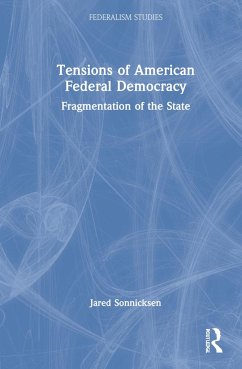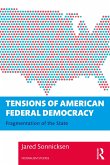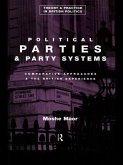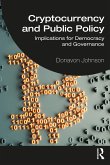Tensions of American Federal Democracy uses an original analytical framework combined with comparative perspectives - including those of other modern federal democracies - to explore the jigsaw puzzle that is the state of American federal democracy.
The USA has a complex political system prone to "divided government", which has become highly polarized in recent years. The reasons for this extend further and deeper than party diversification or rising populism. This book provides an original contribution encompassing the US polity and its overall development. The author explores how the US constitution has predisposed branches and levels of government to multiple forms of separation of power and constituency; and how developments in democratic and federal government over time have fostered more competition, diffusion, and decoupling, despite earlier trends to more cross-branch and cross-level cooperation. The book thus addresses a multifaceted inquiry, interrogating andconceptualizing the connections between institutions, ideas, and political development, while exploring the interlinkage between the institutional parameters of multidimensional division of powers, constitutional political ideas and their contestation, and the limitation of the state in the US federal democratic system.
This book will appeal to students and scholars of political science, American government and constitutional politics, federalism, comparative politics, and political theory.
The USA has a complex political system prone to "divided government", which has become highly polarized in recent years. The reasons for this extend further and deeper than party diversification or rising populism. This book provides an original contribution encompassing the US polity and its overall development. The author explores how the US constitution has predisposed branches and levels of government to multiple forms of separation of power and constituency; and how developments in democratic and federal government over time have fostered more competition, diffusion, and decoupling, despite earlier trends to more cross-branch and cross-level cooperation. The book thus addresses a multifaceted inquiry, interrogating andconceptualizing the connections between institutions, ideas, and political development, while exploring the interlinkage between the institutional parameters of multidimensional division of powers, constitutional political ideas and their contestation, and the limitation of the state in the US federal democratic system.
This book will appeal to students and scholars of political science, American government and constitutional politics, federalism, comparative politics, and political theory.
'Strangely, American federalism has been largely absent from American political development (APD) scholarship. Jared Sonnicksen's insightful, stimulating and ambitious book represents a significant contribution to fill this gap. Building on the concept of immanent fragmentation as an institutional reality and regulative idea, this innovative account of American federal democracy "in" and "through" time has a lot to offer, for students of American politics and comparative federalism alike.'
Jörg Broschek, Associate Professor and Canada Research Chair in Comparative Federalism and Multilevel Governance, Wilfrid Laurier University, Canada
Jörg Broschek, Associate Professor and Canada Research Chair in Comparative Federalism and Multilevel Governance, Wilfrid Laurier University, Canada








